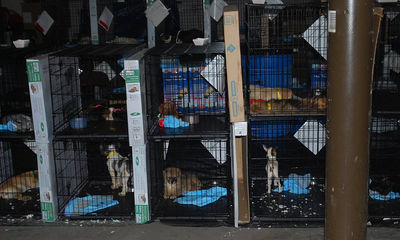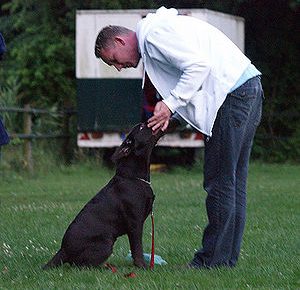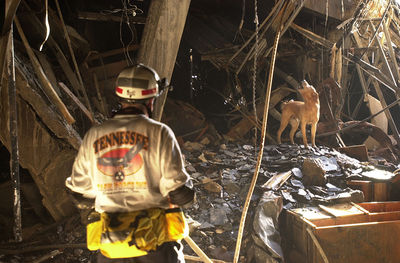Those of us who have shared our lives with small dogs (25 lbs. or less) often make the mistake of not training them. We carry them in totes made especially for them and let them get away with behavior we would never accept from their larger cousins. But when it comes to obedience, all size dogs should learn at least the basics.
All dogs learn best with positive methods. harsh commands or handling will only create unwanted behavior and can break the bond between you and your dog.
Little dogs can be intimidated by the size of a human, so you can either sit down on a chair or on the floor when training your dog. Sitting can save wear and tear on your back too. Use the same basic commands as you would for a large dog, but keep your voice a little softer.
Use a harness when walking your dog. While your dog is learning to walk nicely without pulling, a harness won’t damage neck and throat.
When you want to touch or pick up your small dog, let him know beforehand with a special word you’ve chosen, so that he won’t be frightened by your action.
Just as you do with any dog, reward only the wanted behaviors and ignore the others unless they pose a danger to your dog.
Keep treats to tiny sizes – you don’t want to wind up with an obese dog.
Be sure to socialize your dog well starting as a pup. Your dog should meet all kinds of humans, become accustomed to loud noises such as traffic, any situations you might encounter that don’t pose a threat or danger.
If you happen to see a dog on leash approaching, don’t pick up your dog or pull on the leash, transferring your fear to him. Instead, just turn back or cross the street and continue on your way. If the dog is loose, take your dog into a shop or a hallway, anywhere that’s safe. You can toss some treats to the dog, far as you can from where you are or carry a spray or noisemaker(one that your dog is familiar with) with you while out walking to scare the other dog off. If this fails, you may have to pick up your dog to protect him and prevent an unwanted confrontation.
Look for dog parks that have separate areas for small dogs. If someone with a large dog approaches you and your dog, politely make an excuse so that they don’t come near.
It’s our natural instinct to want to do all we can to protect our dogs, especially the small ones. But it’s important to remember no matter what the size, every dog wants to behave like a dog. Little dogs want the same privileges and responsibilities as large ones.



